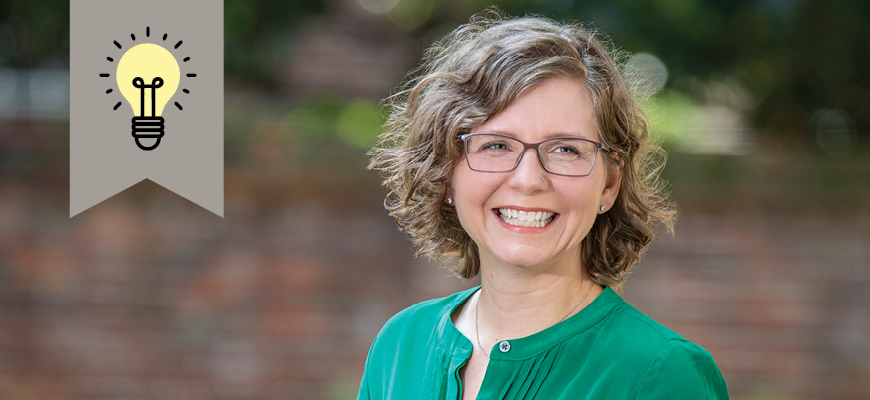
Garnet Apple Award: Tia Stevens Andersen
Criminal justice professor helps students become mentors in alternative high school
Posted on: July 15, 2021; Updated on: July 15, 2021
By Chris Horn, chorn@sc.edu, 803-777-3687
Tia Stevens Andersen
Associate professor, criminology and criminal justice, College of Arts and Sciences
Ph.D., criminal justice, Michigan State University, 2013
2021 Garnet Apple Teaching Award
Joined UofSC faculty 2013
I was an undergraduate student studying sociology at Oakland University in the suburbs of Detroit, and I didn't have a great picture of what I wanted to do after graduation. I took several classes with an instructor who had an excitement for sociology and criminology that I had never seen before. She brought me in on a research project — the first research I had ever done — and strongly suggested that I pursue a graduate education. If not for that, I never would have considered going into graduate school.
In my adolescent mentoring course, undergraduate students go through an intensive training process, then they're matched with a young person at a local alternative high school to provide mentorship the rest of the semester. I guide them through a process of reflecting on their experiences, connecting them to concepts that they're learning about in criminology and criminal justice courses that often feel so abstract and foreign to them. It's a very intense experience that’s different for everyone. One student was describing the amount of patience that she's gained throughout the semester because she's been putting herself out there and trying to be a mentor but not finding the fulfillment and success that she wishes she could have experienced. I also see students who have completely changed their career trajectory because of the experience, who have decided to go into social work or counseling and helping professions. I think it's these moments they have working with young people that ignite a fire.
When the adolescent mentoring program started, I had a student, Abigail Dobbins, who took the course and was matched with a young man who had a lot of trauma in his life. I can't tell you how many times she was in my office with ideas on how to bring him out of his shell. At the end of the semester, we brought all the kids to USC for a little party and, unsolicited, he stood up and talked about how because of her he enjoyed high school now and that he hadn't ever thought college was a possibility until meeting her. There wasn't a dry eye in the room among the adults. So, Abigail pivoted with her career plans, and she is now finishing a graduate degree in school counseling. She is an intern at the same alternative school I partner with for the mentoring program, and I'm working closely with her. It's come full circle.
My first semester teaching? I'll never forget it. I would spend hours and hours writing detailed outlines of all the things I wanted to cover in a class, and then I would get through a quarter of it and beat myself up. I really had unreasonable expectations of what I could cover, and it was a moment of just stepping back and letting go. I think that really changed my teaching. I'm always striving to learn from my students about what is working well and what maybe needs to change or be dropped from the program. I think the challenges of teaching change over time because we're always striving to do better the next time. For me, I don't know that it's gotten any easier. I just think maybe I've gotten a bit more comfortable over time.
I think impostor syndrome is something a lot of people struggle with. It's something I think I still struggle with, and I've been teaching since 2013, but being able to name it and know that it exists and that it's a real struggle for many of us is helpful. I would reassure beginning teachers that they are the experts in the subject matter, so they should trust themselves and also take advantage of the wonderful resources we have on campus like the Center for Teaching Excellence and, in the College of Arts and Sciences, the Incubator for Teaching Innovation and ongoing professional development opportunities.